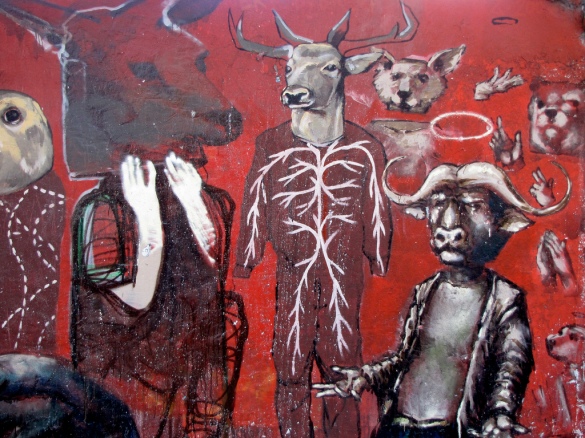Apparently paying to have my domain redirected/merged didn’t update my links to the new blog OR move my followers to the new domain. Ugh.
ashleycliston.com
Sometimes when I get paid, I do stupid things.
Sometimes when I do stupid things, I can talk myself in to believing that they’re gloriously wonderful investments. So what did I invest in today? Myself.
More specifically, my future. In a very, very small way – but still. I decided to spring for a domain and webhosting. I am now the proud owner of ashleycliston.com.
I’m behind on word-count, I struggled to get in a measly two thousand words yesterday while I was struggling through writer’s block without coffee (I managed to kill my coffee-pot – don’t worry, he’s been adequately put to rest and now resides in coffee-pot nirvana and his replacement was picked up this morning. Rest in peace, old friend. May you never again be left running for 12+ hours, washed furiously in scalding water only to be turned on again immediately). Why am I tearing up over my coffee-pot?
Anyway. I want to be held accountable. I want… some tangible reminder that I need to keep going – even on the days I’m fighting through writer’s block, even on the day’s I’m breaking under the weight of self-doubt. Why? Because the simple fact of the matter is, I’m not myself when I’m not writing. Whether or not I’m ever published. Whether or not anyone ever reads the words I’m putting down.
Now, justifications aside… I also really just wanted prettier theme options.
ashleycliston.com
The First Step to Improvement is Admitting Your Flaws
I was somewhere around eleven or twelve when I started writing. I also had a very strict mother who was about as conservative when it came to parenting as she was liberal when it came to politics. Around eleven or twelve you start to rebel – and the stricter your surroundings, the harder you rebel. At least, that’s how it was in my case.

photo credit: Sarah Haines ☾ via photopin cc
So take a little girl. Make her shy, make her the proverbial ugly duckling. Put her in a very protective environment where every single solitary aspect of her life is decided for her – from her wardrobe to her haircut. Shelter her – don’t let her walk to the park with her friends, thoroughly vet every parent she’s going to spend time with (to the point where every activity she’s present for has to happen at your house), screen her phone calls, and clean (read: inspect) her room once a week and read every note you can find to see what she might be up to. Read her diary. But (the ‘but’ is the important part here) give her books. Lots of books. So many books that her bedroom can’t hold them and she has to have a separate playroom just for bookshelves. Buy huge crates of random assorted books at yard sales and give them to her and never think to maybe inspect them for content.
This is how I was created.
Everything I ever learned was from a book. Babysitters Club. Fear Street. The occasional super-smutty romance novel that someone had thrown in their $10 book crate (which, when I think about it, actually taught me awful, extremely un-useful things about real-life relationships).
So when I started to finally write (because I’d finally found a friend whose parents passed ‘the inspection’ and I could hide my notebooks at her house), my characters were the opposite of everything I was ever allowed to be. They were the most fearless and the most beautiful and the most powerful. They wore the coolest clothes, and they never actually had parents – because in my opinion at the time, parents sucked. Everyone (including especially me) wanted to be them. They were the most extreme versions of Mary Sues I’ve ever encountered.
Everything was over-described (most especially my female characters). There was no actual plot. Ever. There were some brief and fleeting ‘disasters,’ but for the most part, my perfect characters lived fun, exciting (but perfect) lives. And vicariously, I lived through them. Which was the point, I guess. My best friend at the time, she was the real writer of out of the two of us (plots, disasters, flawed characters, and all). I was just writing to escape.
I no longer possesses any of my old stories (I couldn’t keep them safe from prying eyes) – but I remember my mistakes every time I write, every time I plot, and every time I craft a character. I think of those same mistakes every time I greedily inhale theories on plot structure, every time I make a spreadsheet – every time I lovingly craft a seismic shit-storm to throw on my already half-broken characters.
Maybe no one will ever see how much progress I’ve made – and that’s okay. Because I do. And that’s what matters.
Why did YOU start writing – and what were your biggest mistakes when you started out?
Drowning Out The World
The world we live in is a distracting place.

photo credit: Lisa Brewster via photopin cc
At any given moment, there are sirens screaming, neighbors fighting (loudly, obnoxiously – about the exact same things they fight about every single day), dogs howling. Phones are ringing off the hook, texts are coming in at a mile a minute – and are usually followed by an unexpected knock at the door.
And by the time that’s over, you’re so annoyed you just want to turn the world off.
But – bathrooms have to be cleaned. Dishes and windows have to be washed. Floors have to be mopped. Animals need to be fed, bathed, cuddled – and then pet hair needs to be vacuumed off every surface in the house.
And by the time the noises are drowned out and a mile-long ‘need-to’ list is completed – the exhaustion sets in and the bed is screaming for your attention (and reminding you that you forgot to wash the sheets).
And sometimes the real world drowns out your story.
You get in fights with your friends. You get in fights with your family. You’re lonely, sad, angry, happy, busy. And you don’t make time to write – or you can’t get in the mood to write.
How do you get back in the groove? That place of excitement where the story just starts to flow from your fingertips like it used to? How do you block everything out when you’re in the middle of one of those miserable days?
HAVE YOU BACKED UP YOUR $#!T TODAY?
There are a lot of things about writing that are difficult. Coming up with enough ideas to fill 90K+ words. Strategically placing convincing plot points. Coming up with real, flawed, believable characters.
Nothing compares to slaving away on that draft and losing it. Or worse, getting halfway through your revisions, and losing everything (this has happened to me – I was so angry I didn’t write for months).

Don’t mind him, he just lost his current WIP.
photo credit: Aurimas Adomavicius via photopin cc
Now that I’m writing again, I back up my work every single day. And you should, too.
There are so many ways a complete backup can be done – but I’m lazy. So I like to go for the simplest option possible. I use Scrivener to write – so any spreadsheets, images, maps, documents with random ideas… basically, I save everything INSIDE my Scrivener project file. I do this, because I have my Scrivener settings set up so that my project backs up to a zip file every single time I close my project. I have the target directory of this zip file set to my Dropbox folder.
So every single time I close Scrivener, every single file that I need is automatically backed up to my online storage.
And it only takes about seven seconds.
Maybe you don’t have Scrivener. That’s okay (actually it’s really not, because Scrivener is the greatest thing that’s ever been invented for humanity), you can still make it really, really simple to back up your work.
Keep everything in one folder (not your documents folder, I don’t think you can .zip/move that). You can have as many folders as you want inside of that one – but keep everything labeled and ready to back-up at a moment’s notice.
Use Online or External Storage. Dropbox, Skydrive, Cloud, Google Drive, USB, CD/DVD… use something. In fact, use more than one something. Keep a copy of your latest project file in on your drive, and on an external device, and in your email.
Make backing up your writing a part of your daily routine. Make a project zipfile every day that you write. No exceptions. Losing even a small piece of your project is heartbreaking.
Have too many webpages/resources saved to back up? Use Evernote to back-up/keep track of your online research.
How do you keep your files backed up? And more importantly,
HAVE YOU BACKED UP YOUR $#!T TODAY?
So, Yesterday I Found a Thing
This ‘thing’ I speak of is actually a website called 750Words. Apparently the original idea comes from a book (The Artist’s Way by Julia Cameron) – and the thought behind it is to write 750 words every morning. She calls them morning pages. I call it zombie-writing. Basically, you wake up in the morning and just start writing stream-of-consciousness style (I guess) until you have three pages (or 750 words). Why morning pages instead of afternoon tea pages or bedtime pages? If I were to wager a guess, it would be in the morning you’re far less likely to censor yourself or discard ideas because (if you’re anything like me) you aren’t actually alive yet, so you’re just word-vomiting all over the page.

Also, how stinking cute are these baby zombies?!
Zombie Walk Brisbane 2012-017= © Sheba_Also @ Flickr.com
Naturally, I wanted to try it.
So this morning, when I finally managed to drag myself out of bed after the seventh alarm I had set up, I fired up my laptop (pre-coffee), squinted at the way-too-bright screen and hammered out anything I could think of regarding the next scene I had listed on my beat sheet. I didn’t care if I punctuated (pre-coffee Ashley = shambling, brain-eating zombie) or if I used correct grammar (because zombie) or even if what I was writing was coherent in any universe known to … well… aliens. Or the Doctor. Or, um. I don’t know.
Anyway, I copied and pasted my 750 765 words into a word doc, and went on about my day. I popped open my word doc at lunch, and realized that I’d word-vomited some… well, word vomit. But, amid the chaos were aspects of the scene that I hadn’t previously considered. I actually ended up with a defined Reaction, Dilemma, and Decision (the three jumping off points for a reactionary scene / sequel). And several places where I could work in a few words of world building and back-story. And a really kick-ass place to finally reveal more about the POV character without info-dumping….
…all from a scene I was dreading. While the events of this scene were always necessary to the plot, I just didn’t think there was enough meat on the bone.
But after my zombie-writing session, I had a really good jumping off point for a scene outline.
What I had to start with:
- A way to advance the plot.
What I ended up with post-zombie writing & post outlining:
- A way to advance the plot,
- A place to state my POV character’s overall goal/motivation for the story (because this is where she realizes it, instead of 6 scenes later like I had previously),
- Increased tension,
- Character development AND internal conflict,
- Establishment of her personal stakes,
- Opportunities for: character background, world building, a nod towards theme, and foreshadowing.
I’m just now getting the opportunity to sit down and write the scene – but I can definitely see how this could be an extremely fruitful addition to my morning ritual.
Eight Heads Are Better Than Two
A few days ago I posted My Own Worst Enemy about how I couldn’t get those words on paper without an outline. Well, the day I posted it, I actually managed to finish a pretty large portion of that outline. And yesterday, thanks to the wonderful ladies of my Camp Cabin and our word sprints, I managed to have my most productive day so far: 5,786 words. In three hours (six half-hour sprints).
I was just reading back over those words as part of my pre-writing ritual. I don’t change anything – but I do read to see where I left off and what had happened. If I’m allowed to say so myself, they were (for the most part) good words. It’s a zero draft, and things will be cut, restructured, and re-written, of course. But I’m insanely happy about how yesterday’s writing turned out.
The first few days of flailing and panic aside – this round of NaNo has been my favorite so far. Those of us in my cabin found each other early –and instead of forming a cabin, we formed a writing group. We brainstormed together for almost a month, shared excerpts, and helped each other with plot points and characterization. It’s been wonderful. I know when I get stuck, I can pop on our forum and be like, “Hey, what do you think of this, how would you get out of this situation?” And the girls will fire back with beautiful ideas because they’re simply that amazing. We’re all writers, we write in different periods, some of us in different genres – but we’re all working toward the same goal: a finished novel. And that’s beautiful. I’ve never been part of a writing group – but this group is more than I could have ever hoped for. They’re invaluable, and I adore each one of them.
Yes, I’m getting all mushy – but I needed to vent my appreciation or I was going to explode.
Do you have a writing group – or do you prefer to write alone?
Storytellers Are Everywhere
When I was learning how to talk, my mother and I lived with my extremely southern, Tennessee-mountain grandparents. My grandmother, while her ‘twang’ is undeniable, enunciates very clearly, and she chooses to forego the ‘southernisms’ my grandfather is famous for (well, at least, famous in our family for). Now, my grandpa is another story. We sit around the table at cookouts and family gatherings prompting him to say certain words (beer, bear, chair) and then we proceed to go around the table imitating him to see who can get the closest. None of us can do it – not even my grandma, and they grew up only 30 miles apart.

photo credit: Knowsphotos via photopin cc
Most of my earliest memories involve my grandfather. Actually, the second word I ever spoke was “Pop,” my name for my grandpa (the first wasn’t mama. It was ’digit’ – an eight-month-old’s bastardized version of my aunt’s dog’s name: Gidgit. My mom still jokingly harasses me about that to this day).
When I was about five years old, my grandpa was teaching me how to play Five-Card Draw (because he was sick of pretending to lose at Go Fish) and he started telling me the story of the day he was born.
He said that the day he was born, his mother’s favorite mare was also pregnant, and about to give birth herself. His mother really needed to get to town (I can’t remember if it was to go to the store or to give birth, it’s been 20 years since I’ve heard this story), so -at nine months pregnant- she mounted her pregnant horse and headed for town. Well, according to Pop (my grandpa), they didn’t get very far before both his mother – and her horse – started experiencing labor pains. So, Rildy (his mom) pulled her horse to the side of the road, and gave birth to my grandpa right there hidden behind some trees, and so did her horse. Apparently, both mother and horse admired their new babies for only a few minutes before Rildy hopped back on her horse, and my (infant) grandpa hopped on the foal, and they all raced home.
The story, when he told it, must have stretched on for half an hour, and he kept a perfectly straight face – despite the fact that I was very, very impressed. Once he was done, I raced into the kitchen where my grandma was cooking, and excitedly repeated the story to her as best as I could remember it, and asked her if she knew the story of the day he was born. My grandma just rolled her eyes, said “He’s so full of shit,” and went back to frying her chicken.
But my grandmother is a storyteller, as well, but she tells her stories either through poetry or a paintbrush (I need to remember to ask her to dig out her Halloween story she wrote when I was a kid and get her permission to scan it in).
Do you have any storytellers in your life? If so, what’s the story you remember most vividly?
My Own Worst Enemy
I made a huge mistake – and for the past few days I’ve been trying to convince myself that it wasn’t a mistake. I’ve been trying to work through it and produce in spite of it, and because of my stubbornness, I’ve fallen severely behind on word count.
I started writing before I had a complete, detailed outline. I’ve written enough first drafts and competed in enough rounds of NaNo to know that I’m not capable of writing that way. I can’t ‘pants’ my way through a plot. It’s not just because I’m never satisfied with my completed draft. I need to know where I’m going with a scene before I start writing it. I need to have already broken it down into the smallest possible parts: the goal of the scene, the conflict, the tension. What parts of my character and their arc I’m trying to show. The underlying tone, how and if the scene hints toward my theme. I need to know where each scene starts, and each scene ends.
It doesn’t work for everyone, but it works for me. That’s how I approach, not just writing, but my life. With specific goals and the information to achieve those goals. Flying blind reduces me into an un-creative, unmotivated nervous wreck.
With an outline, I can do 1.5K-1.8K an hour of words that are good (especially for a first draft). When I don’t outline (like this month) I’m doing 600K an hour, 700K at best, and… they’re awful.
So for the past four days, I’ve been actively working against myself, against my novel, and against my story – all for the sake of being bullheaded. “I’m a writer. I can write.” And I can. But I know the things I need to do in order to get those words on paper, and I chose not to do them.
I’m painfully, severely behind. But if I can finish an outline by the end of the day, I know that I can catch up. It will be a lot of work, but if I work with my weaknesses instead of against them – I can still finish this draft on time.
In Defense of Tropes (alternately titled ‘You Should Be Watching Orphan Black’)
So. During a procrastination session in which I was pretending like I wasn’t actually procrastinating… I was browsing through Tumblr (and Twitter) and thinking about Orphan Black and why I didn’t watch it when it first aired.
I watch Vampire Diaries. I watch The Lying Game (one of my all time favorites, by the way). I watched Ringer (basically the exact same script as The Lying Game only set in NYC and written for “grown ups”). All are filled with twin tropes: Angsty Surviving Twin (Bridgit), Evil Twin (Katherine/Siobhan/Sutton), Fake Twin Gambit, Polar Opposite Twins (Sutton V. Emma) – trust me, I could keep going.
I saw the promos and trailer-commercials for Orphan Black – and my initial reaction was “Oh yay, more secret twins. Lame.” And I didn’t watch. Five weeks into Orphan Black’s first season, I got the summer flu. I ran a fever for days, drank Nyquil out of the bottle with a straw, and slept curled around a box of kleenex (when I could sleep at all). I just wanted to lay out in front of the TV with something to watch that had more than one or two episodes. I’d recently got On Demand – and I saw Orphan Black. Since it aired on BBC, I figured it would be able to hold my interest and it had five episodes. So, in other words, score.
I watched the first episode. I watched the second episode. I forgot I was sick as I watched all five in a row and flew to my laptop. I found out when the next episode was on, and counted down the hours. I got on tumblr so I could see if anyone else was as floored as I was. I stalked the Orphan Black Wiki. I joined my first freaking fandom.
You see, Orphan Black hits the tropes. Angsty Surviving Twin: Sarah. Evil Twin: Helena. Fake Twin Gambit: Sarah posing as Beth, Sarah posing as Katja, Sarah posing as Allison, Allison posing as Sarah, Helena posing as Sarah posing as Beth. Polar Opposite Twins: Everybody vs. Everybody else. Then, after they hit them, they smash them to smithereens. Its written, directed, and acted out in away that is brilliant. Lead actress Taitiana Maslany (who plays seven different roles) even beat out Homeland’s Claire Danes, and Mad Men star Elizabeth Moss for the Critics Choice Award for Best Actress in a Drama.
Each “twin,” or clone, rather, is a perfect, shining example of the kind of character-building that any writer could aspire to. It would have been easy for the writers to flesh out one or two clones and skimp on the ones who don’t get as much air-time. It would have been so easy to leave Helena as a stereotypical psycho-villian. But Religious Zealot, Serial Killer Helena is just as well-rounded and (dare I say) loveable as Science Geek Cosima, or Soccer Mom Alison.
The plot was never expected. In between the last few episodes, my tumblr dashboard was filled with fan theories and discussions – and I browsed through several times daily, just to see what everyone else was thinking. We were researching real-life science, evolutionary development, mythology. That’s what makes a great story for me. I love an air of mystery – a series arc (whether in a novel series or television series) that really makes you think. It was why I loved Lost. It was why I loved Karen Marie Moning’s Fever series. It’s why I love The Dresden Files.
The world of fiction is filled with tropes. It’s filled with cliches. Everything has been done before. What we (as writers) should be aspiring to is a fresh take. If you can’t be the first, be the best.
What’s your favorite piece of fiction (TV, film, literature) that’s taken a well-known trope or cliché and made it into something fresh, new, or interesting?
(By the way, if you haven’t seen Orphan Black,
you can watch it here)




